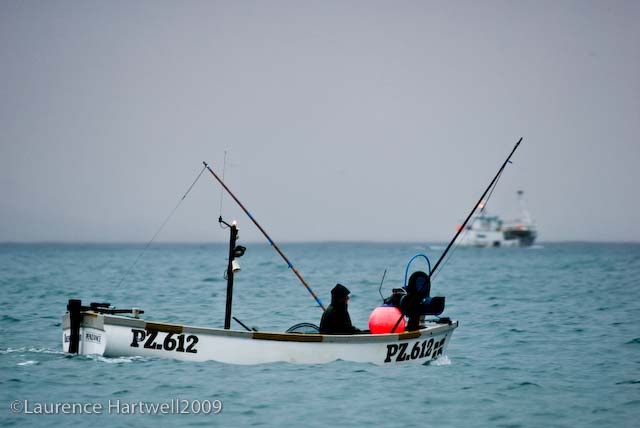Can “collaboration” give our fisheries a future?
From 24th – 26th February 2015, fishers, scientists and policy-makers from across Europe will meet in Barcelona to explore whether “working together” can ensure a sustainable future for our fisheries.
GAP2, an international European Commission-funded research project, is to host a three-day major event, exploring the successes and challenges of collaborative methods in both research and governance.
Designed for fishers, scientists, and policy-makers primarily, but open to anyone with an interest, the event will be free of charge to all delegates, and translation services provided.
Fisherman Alan Steer, Skipper/Owner of the MV ‘Superb-us’, on participatory research:
“Before the Gap2 project started most of my involvement with scientists left me feeling very frustrated. Helping collect and supplying the same data over and over again to different groups, never seeing any returns and in some cases not even knowing if the data had ever been used. But as a partner in the Gap2 project I have felt much more included and can see real benefits for the future.
Fishermen and scientists working together through the life of the whole project has meant that I have been able to have some input and influence on the issues researched. This has given me a better understanding of all the implications and trust in the results. This collaboration means the findings have real relevance to our fishery and give us some of the tools we need to help manage it in a sustainable and profitable way for the future.”
The event will also be a celebration, marking the end of the GAP2 project’s four years of participatory fisheries research in the field across 11 different countries – with participants looking to cement the collaborative approach in the wider fishing industry and governance landscape. What’s more, all who attend will be invited to present at the “GAP2 Great Exhibition” – a creative centrepiece where ‘exhibitors’ will be given the chance to present any relevant work in as creatively as possible.
The wide-ranging event will also feature keynote addresses, lectures and panel debates, alongside more informal sessions, inviting debate from all participants. Delegates will also be given the opportunity to visit one of the Project’s flagship research case studies, in Palamos, close to Barcelona. Here they will have the chance to see the application of a long-term management plan, put in place through collaborative efforts between local fishers, GAP2 scientists, and policy-makers.
GAP2 Project Coordinator, CEFAS Scientist Dr Steven Mackinson, has said:
“We’re really looking forward to bringing together fishers, scientists and policy-makers at this unique event, focused on the practical application, and value, of collaborative methods. I can’t wait to hear the range of opinions and experiences that will be on offer. It’s the perfect way to celebrate the lifetime of the GAP2 project, whilst also looking to the future of Europe’s fisheries”
Register quickly – places are limited to 150!
For further information, images or quotes, please contact Katrina Borrow: Katrina@mindfullywired.org






